Commentary on the Creed of Imam At-Tahawi | Ibn Abi Al-'Izz Al-Dimashqi Al-Hanafi
Commentary on the Creed of Imam At-Tahawi | Ibn Abi Al-'Izz Al-Dimashqi Al-Hanafi
Publisher:
Dakwah Corner Publisher
Author:
Ibn Abi Al-'Izz Al-Dimashqi Al-Hanafi
Language:
English
,
Arabic
Binding:
Hard Cover
Pages: 743
Size: A4|8.3x11.7in | 21 x 29.7 cm
Couldn't load pickup availability
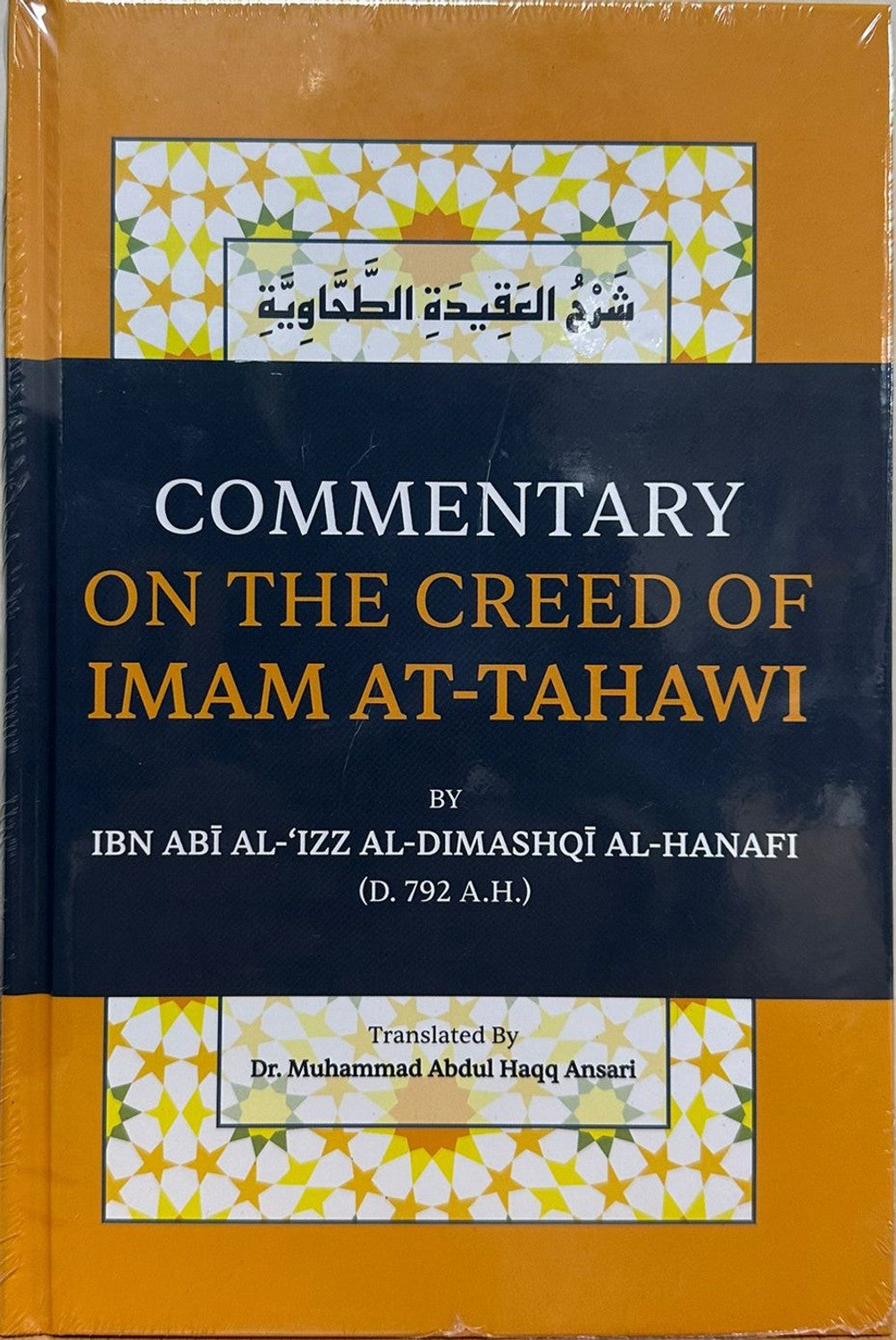
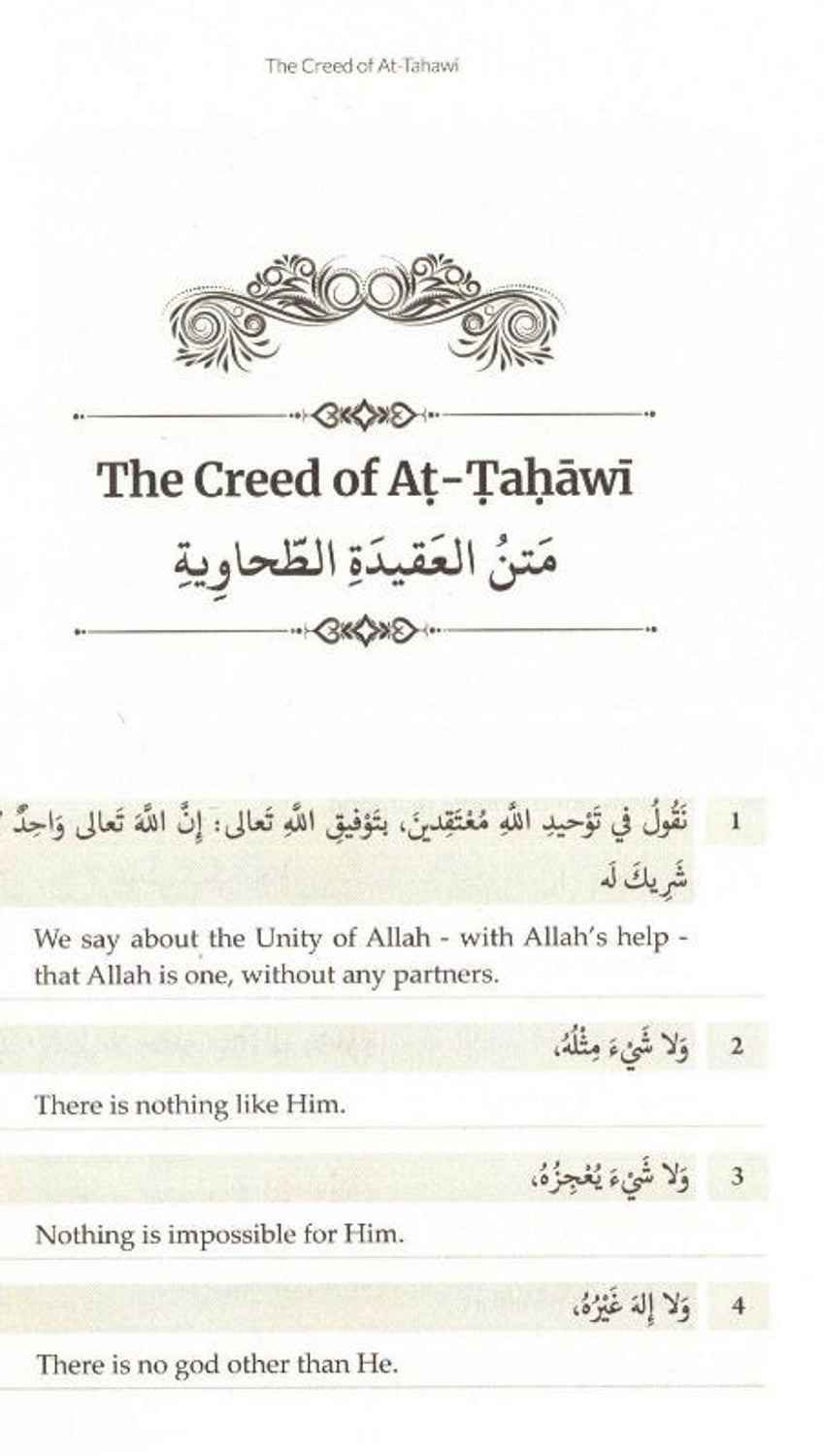
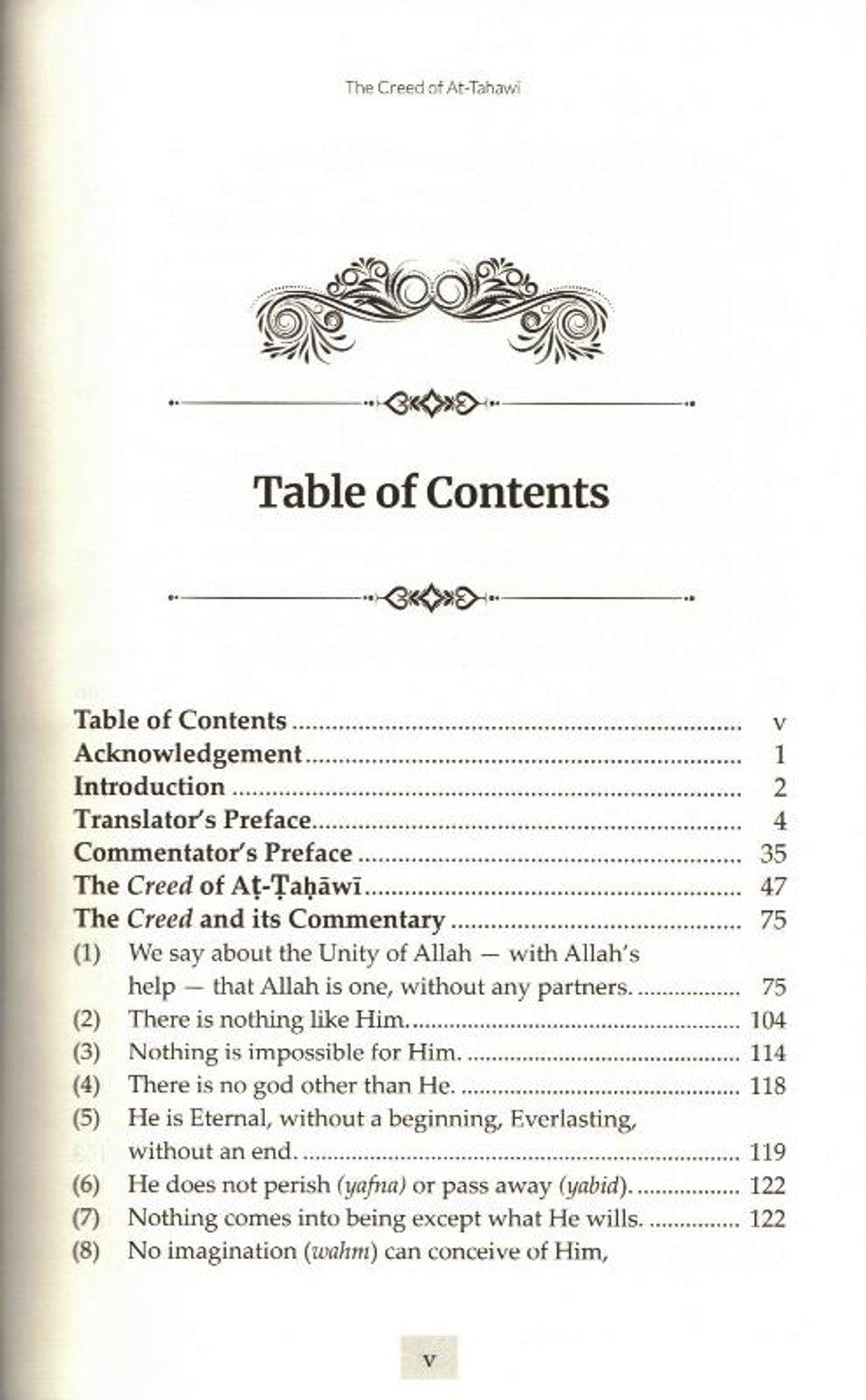
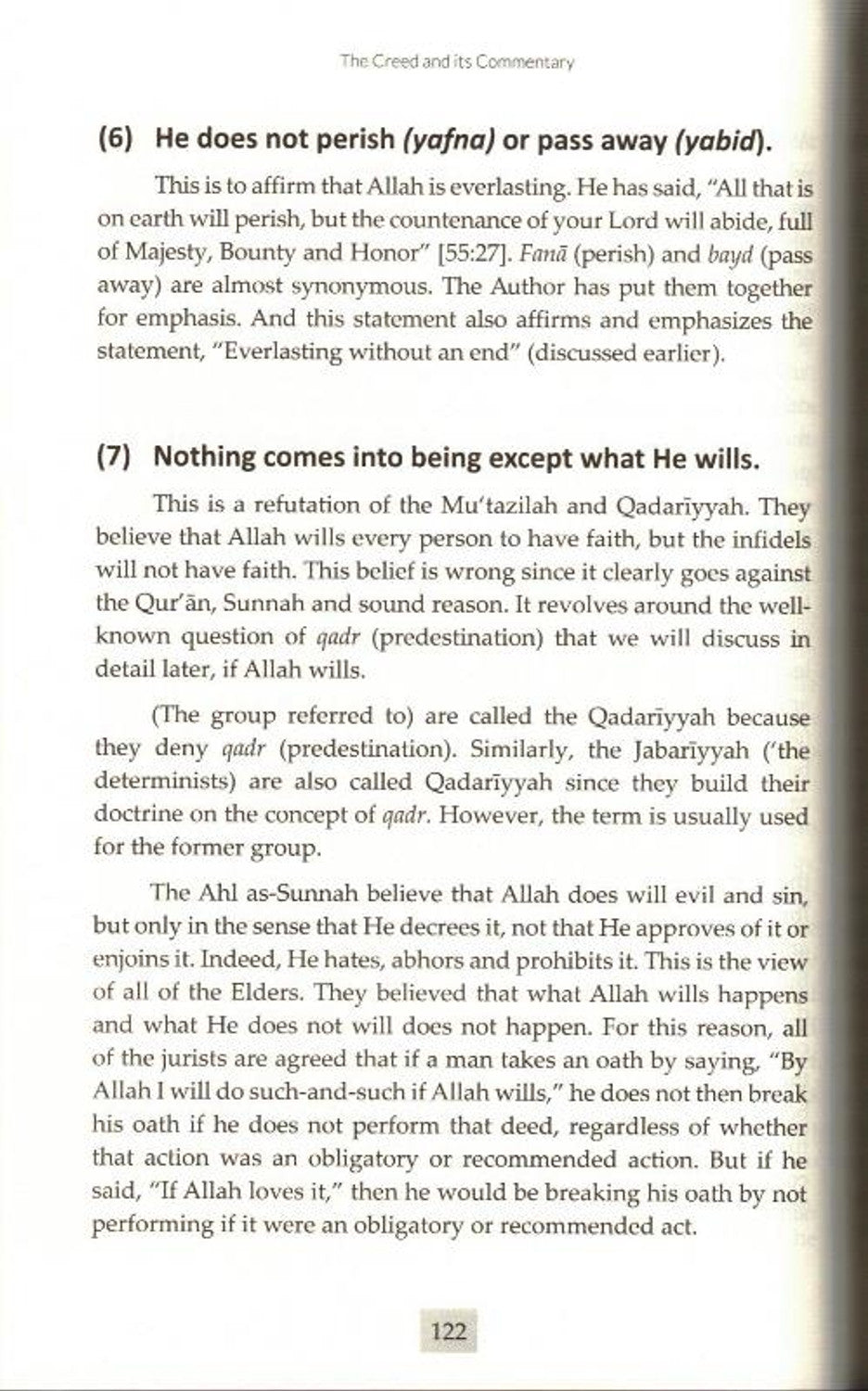
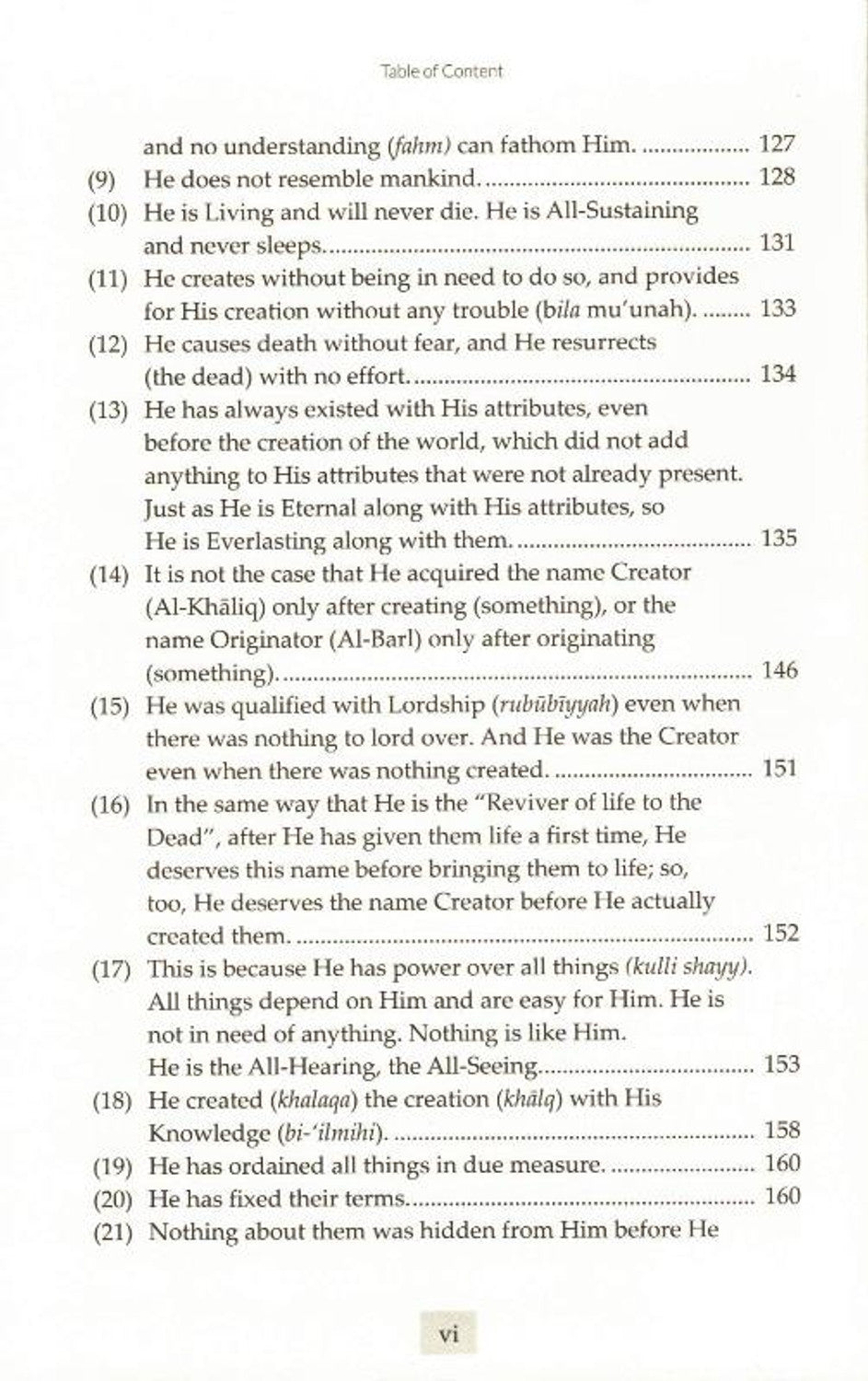
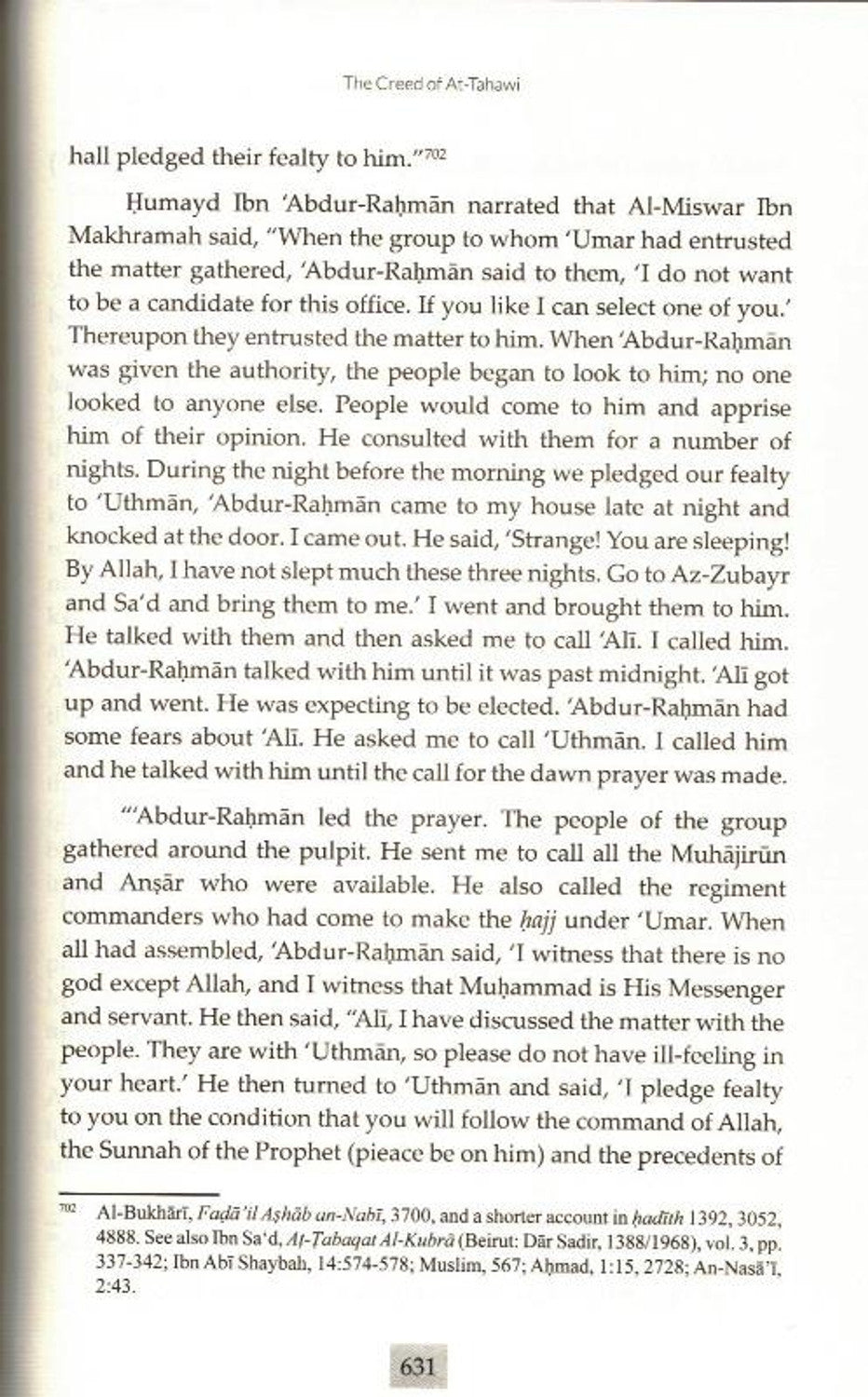
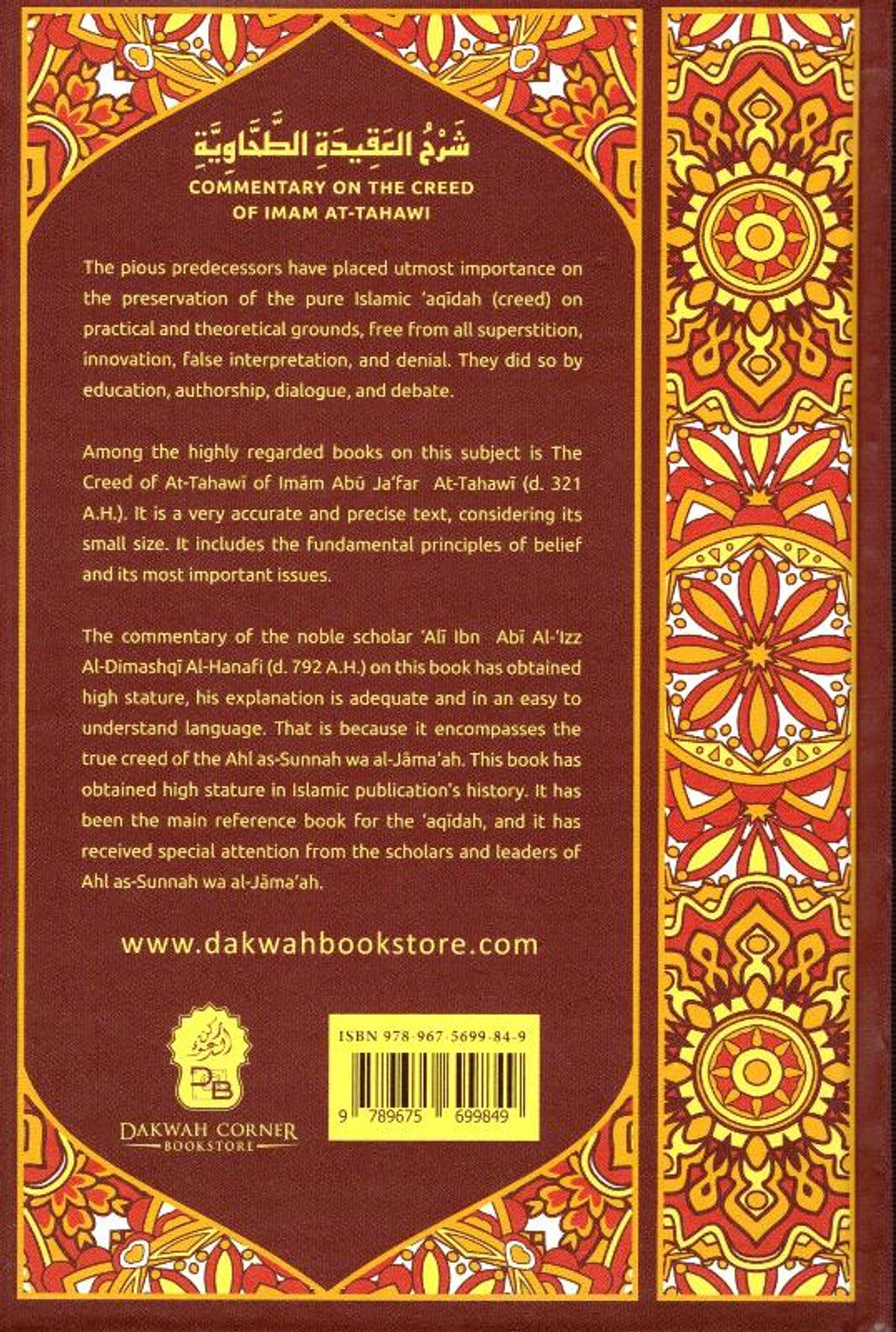
Collapsible content
Description of Book
Commentary on the Creed of Imam At-Tahawi | Ibn Abi Al-'Izz Al-Dimashqi Al-Hanafi
Commentary on the Creed of Imam At-Tahawi" by Ibn Abi Al-'Izz Al-Dimashqi Al-Hanafi is a detailed explanation of the Aqidah (creed) of Imam At-Tahawi, one of the most respected early works on Islamic beliefs. Imam At-Tahawi’s creed provides a concise yet comprehensive summary of Sunni Islamic theology, rooted in the Qur'an and Sunnah, and widely accepted by scholars across various schools of thought.
Ibn Abi Al-'Izz, a prominent 14th-century Hanafi scholar, elaborates on this creed by offering a thorough and rational analysis, drawing on classical sources like the Qur'an, Hadith, and the opinions of early Islamic scholars. His commentary addresses key theological topics such as:
- Tawhid (Oneness of Allah): Explanation of monotheism, attributes of Allah, and the concept of divine decree (Qadr).
- Prophethood: Belief in the prophets, with emphasis on Muhammad (PBUH) as the final prophet.
- Afterlife: Beliefs in resurrection, judgment, heaven, and hell.
- Faith and Deeds: Clarification of the relationship between Iman (faith) and righteous actions.
Publisher
Dakwah Corner Publisher
Author
- Ibn Abi Al-'Izz Al-Dimashqi Al-Hanafi
Sample Pages - Content
Page : 01
شَرْحُ العقيدة الطحاوية
COMMENTARY ON THE CREED OF IMAM AT-TAHAWI
BY
IBN ABI AL-'IZZ AL-DIMASHQI AL-HANAFI (D. 792 A.H.)
Translated By Dr. Muhammad Abdul Haqq Ansari
Page :02
The Creed of At-Tahawi
The Creed of At-Taḥāwī
مَتنُ العَقيدَةِ الطحاوية
نَقُولُ في تَوْحيدِ اللَّهِ مُعْتَقِدِينَ بتَوْفِيقِ اللَّهِ تَعالى : إِنَّ اللَّهَ تَعالى وَاحِدٌ .
شَرِيكَ لَه
We say about the Unity of Allah - with Allah's help - that Allah is one, without any partners.
There is nothing like Him.
Nothing is impossible for Him.
There is no god other than He.
2 وَلا شَيْء مِثْلُهُ
3 وَلا شَيْءَ يُعْجِزُهُ،
4 ولا إلهَ غَيْرُهُ،
Page : 03
The Creed of At-Tahawi
K
Table of Contents
Table of Contents Acknowledgement. Introduction ......
Translator's Preface... Commentator's Preface.
V
1
2
4
35
The Creed of At-Taḥāwī.
47
The Creed and its Commentary.
75
(1) We say about the Unity of Allah
with Allah's
help that Allah is one, without any partners..
75
(2) There is nothing like Him....
104
(3) Nothing is impossible for Him.
114
(4) There is no god other than He..
118
(5) He is Eternal, without a beginning, Everlasting,
without an end..
(6) He does not perish (yafna) or pass away (yabid).. (7) Nothing comes into being except what He wills. (8) No imagination (wahm) can conceive of Him,
122
119
122
V
Page : 04
The Creed and its Commentary
(6) He does not perish (yafna) or pass away (yabid).
This is to affirm that Allah is everlasting. He has said, "All that is on earth will perish, but the countenance of your Lord will abide, full of Majesty, Bounty and Honor" [55:27]. Fanā (perish) and bayd (pass away) are almost synonymous. The Author has put them together for emphasis. And this statement also affirms and emphasizes the statement, "Everlasting without an end" (discussed earlier).
(7) Nothing comes into being except what He wills.
This is a refutation of the Mu'tazilah and Qadariyyah. They believe that Allah wills every person to have faith, but the infidels will not have faith. This belief is wrong since it clearly goes against the Qur'an, Sunnah and sound reason. It revolves around the well- known question of qadr (predestination) that we will discuss in detail later, if Allah wills.
(The group referred to) are called the Qadariyyah because they deny qadr (predestination). Similarly, the Jabariyyah ('the determinists) are also called Qadariyyah since they build their doctrine on the concept of qadr. However, the term is usually used for the former group.
The Ahl as-Sunnah believe that Allah does will evil and sin, but only in the sense that He decrees it, not that He approves of it or enjoins it. Indeed, He hates, abhors and prohibits it. This is the view of all of the Elders. They believed that what Allah wills happens and what He does not will does not happen. For this reason, all of the jurists are agreed that if a man takes an oath by saying, "By Allah I will do such-and-such if Allah wills," he does not then break his oath if he does not perform that deed, regardless of whether that action was an obligatory or recommended action. But if he said, "If Allah loves it," then he would be breaking his oath by not performing if it were an obligatory or recommended act.
Page : 05
Table of Content
and no understanding (fahm) can fathom Him.
(9) He does not resemble mankind..
(10) He is Living and will never die. He is All-Sustaining
and never sleep..............
for His creation without any trouble (bila muʼunah).. (12) He causes death without fear, and He resurrects
(the dead) with no effort..........
127
128
131
(11) He creates without being in need to do so, and provides
133
134
(13) He has always existed with His attributes, even before the creation of the world, which did not add anything to His attributes that were not already present. Just as He is Eternal along with His attributes, so He is Everlasting along with them..........
135
(14) It is not the case that He acquired the name Creator (Al-Khaliq) only after creating (something), or the name Originator (Al-Barl) only after originating (something)......
Page : 06
The Creed of At-Tahawi
hall pledged their fealty to him."702
Humayd Ibn 'Abdur-Rahman narrated that Al-Miswar Ibn Makhramah said, "When the group to whom 'Umar had entrusted the matter gathered, 'Abdur-Rahman said to them, 'I do not want to be a candidate for this office. If you like I can select one of you.' Thereupon they entrusted the matter to him. When 'Abdur-Rahman was given the authority, the people began to look to him; no one looked to anyone else. People would come to him and apprise him of their opinion. He consulted with them for a number of nights. During the night before the morning we pledged our fealty to 'Uthman, 'Abdur-Rahman came to my house late at night and knocked at the door. I came out. He said, 'Strange! You are sleeping! By Allah, I have not slept much these three nights. Go to Az-Zubayr and Sa'd and bring them to me.' I went and brought them to him. He talked with them and then asked me to call 'Ali. I called him. 'Abdur-Rahman talked with him until it was past midnight. 'Ali got up and went. He was expecting to be elected. 'Abdur-Rahman had some fears about 'Ali. He asked me to call 'Uthman. I called him and he talked with him until the call for the dawn prayer was made.
"Abdur-Rahman led the prayer. The people of the group gathered around the pulpit. He sent me to call all the Muhajirun and Anşar who were available. He also called the regiment commanders who had come to make the hajj under 'Umar. When all had assembled, 'Abdur-Rahman said, 'I witness that there is no god except Allah, and I witness that Muhammad is His Messenger and servant. He then said, "Ali, I have discussed the matter with the people. They are with 'Uthman, so please do not have ill-feeling in your heart.' He then turned to 'Uthman and said, 'I pledge fealty to you on the condition that you will follow the command of Allah, the Sunnah of the Prophet (pieace be on him) and the precedents of
702
Al-Bukhari, Fada'il Aşhab an-Nabi, 3700, and a shorter account in hadith 1392, 3052, 4888. See also Ibn Sa'd, At-Tabaqat Al-Kubra (Beirut: Dar Sadir, 1388/1968), vol. 3, pp. 337-342; Ibn Abi Shaybah, 14:574-578; Muslim, 567; Ahmad, 1:15, 2728; An-Nasă'I, 2:43.
Page : 07
شَرْحُ العَقِيدَةِ الطَّاوِيَّةِ
COMMENTARY ON THE CREED
OF IMAM AT-TAHAWI
The pious predecessors have placed utmost importance on the preservation of the pure Islamic 'aqidah (creed) on practical and theoretical grounds, free from all superstition, innovation, false interpretation, and denial. They did so by education, authorship, dialogue, and debate.
Among the highly regarded books on this subject is The Creed of At-Tahawi of Imam Abu Ja'far At-Tahawi (d. 321 A.H.). It is a very accurate and precise text, considering its small size. It includes the fundamental principles of belief and its most important issues.
The commentary of the noble scholar Ali Ibn Abi Al-'Izz Al-Dimashqi Al-Hanafi (d. 792 A.H.) on this book has obtained high stature, his explanation is adequate and in an easy to understand language. That is because it encompasses the true creed of the Ahl as-Sunnah wa al-Jama'ah. This book has obtained high stature in Islamic publication's history. It has been the main reference book for the 'aqidah, and it has received special attention from the scholars and leaders of Ahl as-Sunnah wa al-Jama'ah.
www.dakwahbookstore.com
ISBN 978-967-5699-84-9
DAKWAH CORNER
BOOKSTORI
9 789675 699849
Ibn Abi Al-'Izz Al-Dimashqi Al-Hanafi
Ibn Abi Al-'Izz Al-Dimashqi Al-Hanafi (d. 792 AH / 1390 CE) was a renowned 14th-century Hanafi scholar known for his expertise in Islamic theology (Aqidah) and jurisprudence. His most famous work is the commentary on Imam At-Tahawi's Creed (Aqidah At-Tahawiyyah), a foundational text of Sunni Islamic belief. In his commentary, he clarifies core theological concepts such as Tawhid (Oneness of Allah), Prophethood, Qadr (Divine Decree), and the Afterlife, using evidence from the Qur'an, Hadith, and early scholars. His balanced approach between rationality and textual evidence has made his work a cornerstone in Islamic theological studies.







